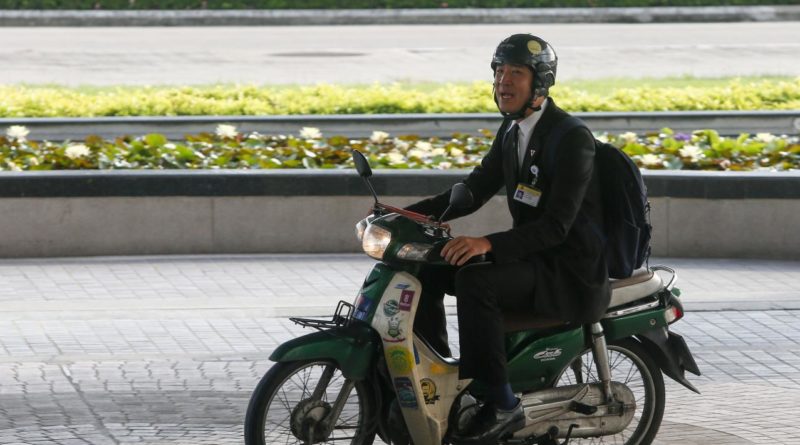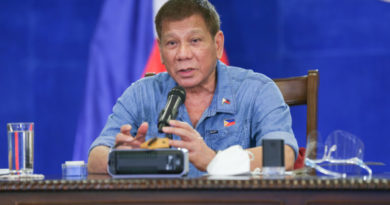EDITORIAL: Call time on beer barons

No one but the ultra rich are allowed to brew beer for sale in Thailand. The law is as unjust and outrageous as that. And no lawmaker has suffered the bitter taste of inequality in the brewing industry quite like Future Forward Party MP Taopiphop Limjittrakorn, who in January 2017 was arrested for brewing and selling his own craft beer. At the time he was a young entrepreneur, looking to break into the business.
On Wednesday, Mr Taopiphop, 30, took Deputy Finance Minister Santi Prompat to task over his ministry’s regulation that stops brewing start-ups from exploiting the growing thirst for new flavours. Restaurants and bars are currently struggling to meet the demand for imported craft and wheat beers. Not helping their cause is the ministry’s regulation, which protects a handful of giant breweries that have dominated the country’s 180-billion-baht industry for decades.
In parliament, Mr Taopiphop questioned why the ministry operates a regulation which helps a few conglomerates dominate the market with their brands of beer while locking out small players.
———
ADS by Cloud 9:
.
– SPACE RESERVE FOR YOUR ADVERTISEMENT –

Under the regulation, issued in 2000 under the 1950 liquor control act, to be eligible for a brewing licence company must produce more than 10 million litres per year and have paid-up capital of more than 10 million baht.
Mr Taopiphop said a new start-up would need to have as much as 1 billion baht in revolving capital to be able to handle production on that scale.
———
ADS by Cloud 9:
.
– SPACE RESERVE FOR YOUR ADVERTISEMENT –

The bar is also set high for those who want to open a brewpub. They are obliged to produce at least 100,000 litres and no more than 1 million litres per year. But they cannot sell their brews as bottled products outside the brewpubs. It’s perhaps no surprise, then, that Thailand currently boasts no more than 15 registered brewpubs nationwide.
ADS by Cloud 9:
.
– SPACE RESERVE FOR YOUR ADVERTISEMENT –

The deputy minister defended the regulations, saying the restrictions are needed to guarantee safety for drinkers and ensure brewing products meet quality standards. The explanation — which echoed standard ministry rhetoric — failed to satisfy Mr Taopiphop.
He insisted the ministry’s Excise Department has sufficient technical capacity and resources to handle quality control. He also pointed out that large investment alone would not guarantee the quality of beer. He was right. Thailand is, after all, home to the manufacture of countless food and beverage products at every scale.
———
ADS by Cloud 9:
.
– SPACE RESERVE FOR YOUR ADVERTISEMENT –

Mr Santi said the Excise Department is reviewing the rule on paid-up capital to see if it is still practical. However, given the government’s record of implementing policies that favour large corporates, it is doubtful whether there will be any change at all.
The regulation has forced dozens of Thai brewing start-ups to set up plants in other countries — including Laos, Cambodia, Australia and Taiwan — and have their products exported to Thailand for sale here. Doing it that way, however, means having to pay high import tax which adds to the cost of their brews.
In a country where the richest 1% of the population possesses more than two-thirds of the wealth, handing exclusive control of the beer industry to the ultra rich does nothing to narrow the disparity.
The ministry must lower the requirements for annual production and paid-up capital so that small brewing start-ups can enter the industry and take at least a small share — which will amount to no more than drop in the ocean.
With the legal barrier to small brewers removed, consumers would be able to enjoy locally made and more affordable craft beer.
EDITORIAL
BANGKOK POST EDITORIAL COLUMN
———
ADS by Cloud 9:
.
– SPACE RESERVE FOR YOUR ADVERTISEMENT –

 All photographs, news, editorials, opinions, information, data, others have been taken from the Internet ..aseanews.net | [email protected]
All photographs, news, editorials, opinions, information, data, others have been taken from the Internet ..aseanews.net | [email protected]
For comments, Email to :D’Equalizer | [email protected] | Contributor









